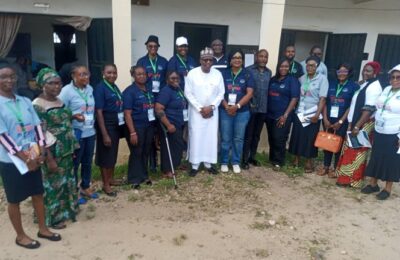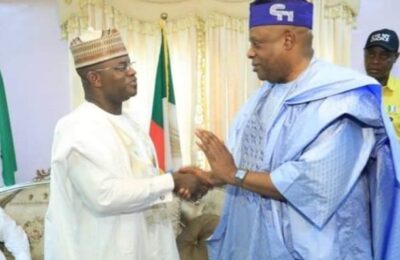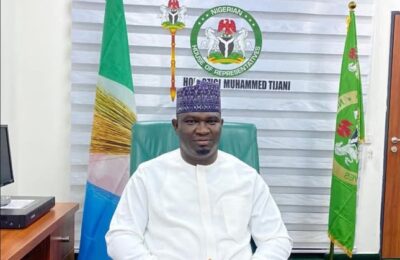For generations, Igalaland has been the towering axis of Kogi State’s political structure — a region adorned with historical prestige, demographic weight, and cultural eminence. Yet beneath this veneer of grandeur lies a profound disquiet: a persistent disorder of political identity and direction that some analysts have come to describe as “political dyslexia” — the chronic inability to translate potential into coordinated power. It is a condition not born of ignorance, but of misalignment; not of weakness, but of fragmented will.
Observers note that this political dyslexia is neither sudden nor accidental. It is the culmination of decades of conflicting loyalties, competing ambitions, and an ingrained nostalgia for a bygone era of dominance. “The Igala have always been at the centre of Kogi’s political story,” says one political historian. “But history alone no longer guarantees relevance. Without strategic coherence, legacy becomes a cage rather than a crown.”
Once, the Igala voice resonated with commanding clarity across the political corridors of Kogi. Their numerical strength and cultural cohesion made them the inevitable fulcrum of power. Yet in the shifting terrain of Nigeria’s democratic evolution, sheer numbers have proven insufficient. The politics of the twenty-first century rewards strategy over sentiment, negotiation over nostalgia. Igalaland, however, seems ensnared in a cycle of self-defeating fragmentation, repeating old patterns of division under new guises.
At every critical juncture, the region finds itself paralysed by internal competition — multiple candidates vying for the same mandate, each proclaiming authenticity, each fracturing the collective. “It’s a classic case of too many generals and no army,” remarks a political analyst in Lokoja. “Every election cycle, the Igala elite splinter their own base, and in doing so, they surrender the leverage that unity once gave them.”
This recurring disunity has become both symptom and cause of political decline. Rival blocs within Kogi have learned to capitalise on Igala disarray, forging cohesive alliances while Igalaland dissipates its strength in intra-ethnic skirmishes. The result is a paradox: a people with the tools of power, yet perpetually outmanoeuvred by more disciplined factions. As one observer quips, “The Igala don’t lose elections; they lose themselves.”
But to attribute the malaise solely to ambition is to overlook its deeper roots. At its heart lies a psychological dissonance — an attachment to ancestral grandeur that inhibits adaptation to contemporary realities. Many within the region still perceive political leadership as an inherited right rather than a negotiated outcome. “There’s a mythic belief that being Igala is enough,” says a socio-political commentator. “But in modern politics, identity without strategy is a hollow drum.”
This tension between legacy and leadership has produced a dangerous inertia. While other groups recalibrate their tactics, Igalaland risks clinging to the illusion of inevitability. Yet history is not static. The arithmetic of power has shifted; emerging demographics, new coalitions, and the dynamics of federal politics now demand agility, not entitlement. Without introspection and recalibration, the region could find itself relegated from kingmaker to bystander.
The term “political dyslexia” captures more than mere confusion. It signifies a structural inability to process political signals correctly — to interpret opportunity, to organise response, to sustain focus. Where unity is required, discord emerges; where foresight is demanded, nostalgia intrudes. The cost is not only electoral loss, but progressive marginalisation in policy influence and developmental allocation.
Yet the path to redemption is neither obscure nor unattainable. What Igalaland requires is a strategic renaissance — a deliberate reawakening built on consensus, pragmatism, and collective ambition. Political literacy must evolve from mere participation to purposeful negotiation. “It’s time to move from emotion to execution,” asserts a respected community elder. “The strength of a people lies not in how loudly they remember the past, but in how wisely they design the future.”
This renaissance begins with unity — not superficial declarations of solidarity, but genuine alignment of interests. It demands a new political consciousness that prizes coherence over ego, collaboration over competition. The Igala elite must recognise that personal ambition without collective strategy is political suicide. Coalitions must be built not as transactional conveniences but as instruments of shared vision.
Crucially, this transformation must be undergirded by generational synergy. The old guard must embrace mentorship, not monopoly, allowing younger voices to inject innovation into the political bloodstream. In an age defined by rapid change, leadership must be adaptive, data-driven, and inclusive. The next phase of Igala politics must therefore be intellectual, intentional, and integrated — a fusion of heritage and modern strategy.
But unity alone is not sufficient. The region must articulate a coherent political philosophy — a clear agenda anchored in development, equity, and governance. Power, when pursued as an end in itself, disintegrates into vanity; but power pursued as a means to collective uplift becomes transformative. Igalaland’s resurgence depends on articulating a vision that transcends ethnicity and resonates across Kogi’s diverse mosaic.
Time, however, is not an infinite luxury. Each electoral cycle deepens the risk of obsolescence. The longer the region languishes in strategic incoherence, the more entrenched alternative power centres become. “Politics rewards those who move,” warns a Kogi-based journalist. “If you stay still, even history will overtake you.”
The choice before the Igala nation is stark yet simple. It can persist in the labyrinth of political dyslexia, mistaking sentiment for strategy and nostalgia for negotiation. Or it can summon the clarity and courage to reinvent its political destiny. Legacy is an inheritance; leadership is a craft. One is given, the other must be forged.
If Igalaland is to reclaim its rightful stature, it must first learn to read the language of power anew — to decode its symbols, to discipline its impulses, to harmonise its voice. In the final analysis, history will not remember how loud a people once were, but how wisely they spoke when it mattered most.
Until that awakening comes, the story of Igalaland will remain a cautionary epic — of strength without structure, pride without plan, and a people whose greatest obstacle has never been the enemy without, but the discord within.
– Inah Boniface Ocholi writes from Ayah – Igalamela/Odolu LGA, Kogi state.
08152094428 (SMS Only)




